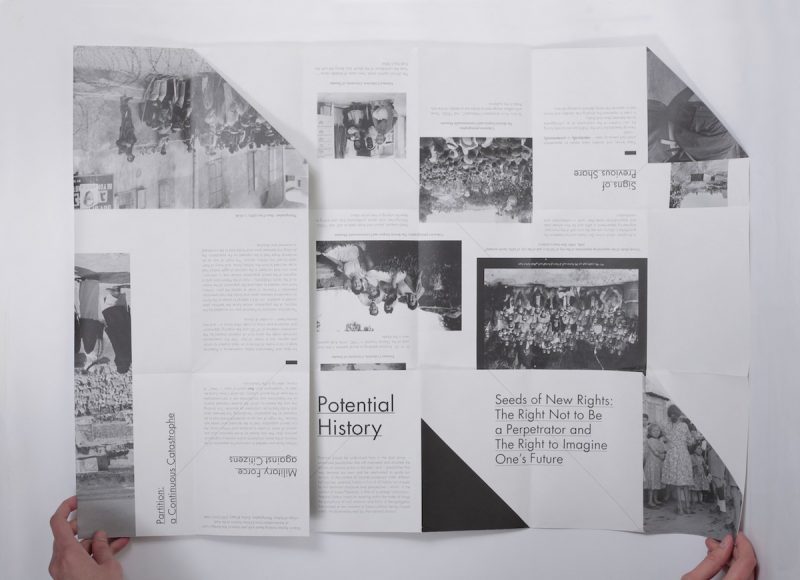The Fundació Antoni Tàpies will temporarily close on April 25, 2024, from 5 p.m. Sorry for the inconvenience.

The Fundació Antoni Tàpies will temporarily close on April 25, 2024, from 5 p.m. Sorry for the inconvenience.


This exhibition consists of a series of ‘rehearsals’ in non-imperial modes of archival literacy and in repairing (printed) errors in the context of the ending of WWII, the destruction of Palestine and other colonial projects. Photography is being used here as part of a ‘potential history’, a way of unlearning the imperial habits and gestures through which citizens of differentially ruled body politics have been trained to inhabit the privileged position of experts – in photography, art, politics and human rights discourse – and explore the plight of others, congealed in objects, books and documents, while those others with whom they share the world are forced to endure secondary and subservient roles.
Imperial archival literacy is predicated not simply on the ability to read but rather on knowing how to read “properly” and use legal, political and historical texts as compelling and authoritative documents—regardless of the degree of abuse and destruction their production has caused and their continuing uses entail. This paper trail culture is premised on a certain sacredness of objects, which are sealed in the past and considered “historical,” relegating us to a role of external readers, viewers and interpreters. One of the projects entitled Errata , is an attempt to practice in negating this sacredness and amending some of the substantial or secondary errors inscribed in these papers. Books, documents, and images are not understood here as final, sealed objects that are open to multiple interpretations, only as long as they reaffirm the untouchable status of these objects as historical items that “ought to be preserved.” Instead, through textual and visual interventions, including erasure, replacement, juxtaposition, addition and subtraction, the untouchable status of objects of knowledge – books, documents, and art works – is herein called to question.
Errata is premised on the right to intervene in and reverse imperial knowledge. Azoulay’s new film Un-documented: Undoing Imperial Plunder i s an attempt to make coincide the two regimes imperialism seeks to keep separated – the treatment of objects (as “well documented”) and maltreatment of people (as “undocumented”). Focusing on plundered objects in European museums and listening to the call of asylum seekers to enter European countries, their former colonizing powers, the film defends the idea that their rights are inscribed in these objects, that were kept well documented all these years.

Dates
11.10.2019 – 12.01.2020
Co-curators
Ariella Aïsha Azoulay and Carles Guerra
December 11-12: Seminar
Modalities and Initiatives of Repair, Restitution and Reparations
With: Ariella Aïsha Azoullay, Kader Attia, Susan Meiselas, Hagar Ophir, Françoise Vergès
Leaflet: